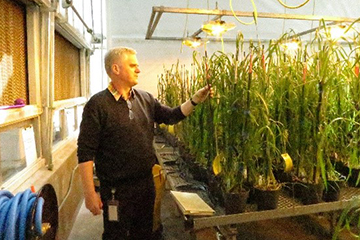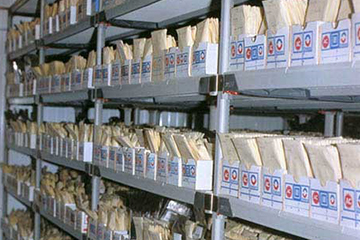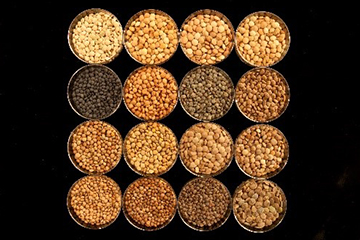Set up an interview
Media Relations
Agriculture and Agri-Food Canada
1-866-345-7972
aafc.mediarelations-relationsmedias.aac@agr.gc.ca
Canada’s national genebank for plant genetic resources is celebrating its 50th anniversary! Officially known as Plant Gene Resources of Canada (PGRC), it was established in 1970 and has contributed to national and global food security ever since.
The 50th year of PGRC has come at a unique time for our world, as the outbreak of COVID-19 reminds us that pandemics can happen at any time – to humans, crops or animals. As we have seen with COVID-19, the globalization of supply chains for agricultural and horticultural crops can inadvertently reduce the genetic diversity of crops making them susceptible to disease and wide-spread crop failures.
We need PGRC’s important work to preserve the genetic diversity of cultivated plants and their wild relatives to support plant breeding and conduct research and education.
“Having the genetic traits for disease resistance available is one of the major contributions of genebanks around the world, including PGRC. In addition, the need to rely more on locally adapted crops in the future may be supported by genetic diversity in the genebank collections.”
- Dr. Axel Diederichsen, Curator, Plant Gene Resources of Canada
PGRC, originally located in Ottawa, moved to Saskatoon, Saskatchewan, in 1998. It is part of the Canadian national plant genebank system for plant genetic resources for food and agriculture, which also includes the Canadian Clonal Genebank in Harrow, Ontario, which focuses on fruit crops; and, Canadian Potato Gene Resources in Fredericton, New Brunswick.
The seed bank at PGRC maintains a collection of more than 115,000 different samples (or accessions) of cultivated plant species and their wild relatives. This collection includes samples from countries across the globe, but the PGRC is more than a place that just acquires and preserves samples. PGRC rejuvenates and assesses seed germplasm and undertakes collaborative research on how best to store seeds, and germinate and cultivate them to learn more about their genetics and traits.
PGRC collaborates with many international partners including the United States, Mexico and other countries involved in the Food and Agriculture Organization (FAO) of the United Nations. PGRC is Canada’s representative in a worldwide network of plant genetic resources centres coordinated by the FAO and is our key player in the North American PROCINORTE Task Force as well as the International Treaty for Plant Genetic Resources for Food and Agriculture.
“For North America, the cooperation among the US, Mexico and Canada’s plant genetic resources is coordinated by the PROCINORTE Task Force on Genetic Resources. Globally, the International Treaty for Plant Genetic Resources for Food and Agriculture and the Commission on Genetic Resources of the Food and Agriculture Organization of the United Nations are important for PGRC. They enhance the coordination of global efforts to ensure genetic diversity for food security is maintained and can be used to support food security. In addition, PGRC is in contact with many national genebanks around the world.”
- Dr. Axel Diederichsen, Curator, Plant Gene Resources of Canada
Annually, the PGRC distributes more than 5,000 germplasm samples including seeds, tubers, and cuttings nationally and internationally to over 60 countries. These samples are used to support research, breeding, education and the diversification of agriculture here in Canada and around the world.
The work being done at PGRC plays a fundamental role in ensuring the resilience of Canada’s agricultural sector and contribute to our world’s food security and food supply.
Photo gallery


